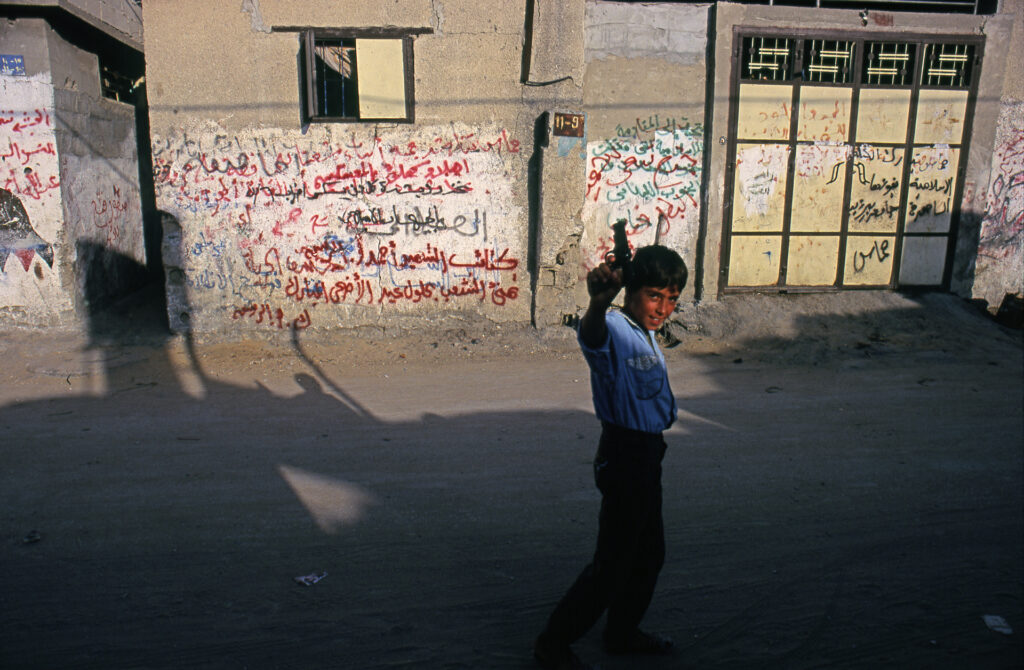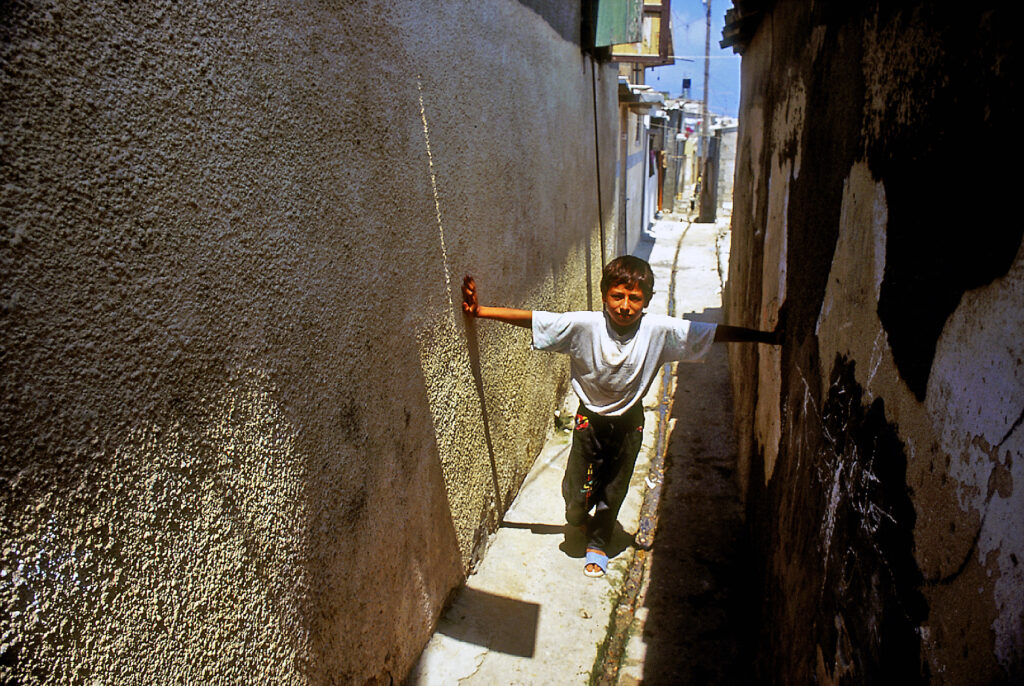Kamal’s Story
The smell of rotting garbage in hot humid air; trickles of raw sewage draining down concrete troughs etched in a narrow lane between high walls connecting a maze of cinder-block houses. The first iron door on the left is the entrance to Kamal’s home. He is eight years old and lives here with his mother, father and eight brothers and sisters. They are Palestinians who share a small space in “Shatia,” one of seven refugee camps inside the Gaza Strip – the most densely populated place in the world. There is no electricity today, no fan inside, so we sit outside and Kamal tells me his story.
“I threw stones at the soldiers, but escaped and ran home. They chased me and found me right here. They grabbed me. My mother came out of the kitchen. They pushed her into the wall and took me outside, and pushed me in a big jeep. They drove me to the building that used to be the legislative council, before the Israeli soldiers came. On the way they beat me on the head with the back of their guns and one of them burned my fingers and legs with his cigarette. They had a knife, and they cut my hand . I was bleeding and screaming and crying. They said, ‘If you don’t stop crying and tell us who ordered you to throw stones, we will shoot you. We have killed boys your age in the Beach Camp and we will kill you too’”.
Kamal shows me the scars from the cigarette burns and the cut on his right wrist. “My head and hand were bleeding. I told him my friend Amjad told me to throw stones. They took me to the jeep and I showed them where Amjad lives. On the way to Amjad’s house, the Israeli soldiers wanted me to drink from a small bottle. I refused, I think maybe it was alcohol. When we got to Amjad’s house they saw that he was eight years old, like me. They ordered Amjad’s father to beat him in front of them. His mother tried to stop him, but the the soldiers grabbed her. After Amjad’s father beat him with a rubber hose, they exploded a noise bomb in front of their house and left us. I cannot forget what they did to me”.
“I can only imagine the overwhelming helplessness that invades a child’s psyche when flight is impossible and fight becomes inevitable, a sensation that psychologically reduces them to nothing. It strips away their precious autonomy, their ability to control their environment and their minds – attributes that distinguish people from animals – so it makes them subhuman”.
- Ragda, child play therapist, Gaza Community Mental Health Program
Kamal had many symptoms of Post Traumatic Stress Disorder: aggressive behavior, isolation, disobedience, sleep disturbances and nightmares, fears (soldiers and darkness), nervousness, emotional detachment from friends, increased emotional attachment to his parents, avoidance behavior, depression, apathy, difficulty in concentrating over school work, and bed-wetting.
– Gaza 1996




